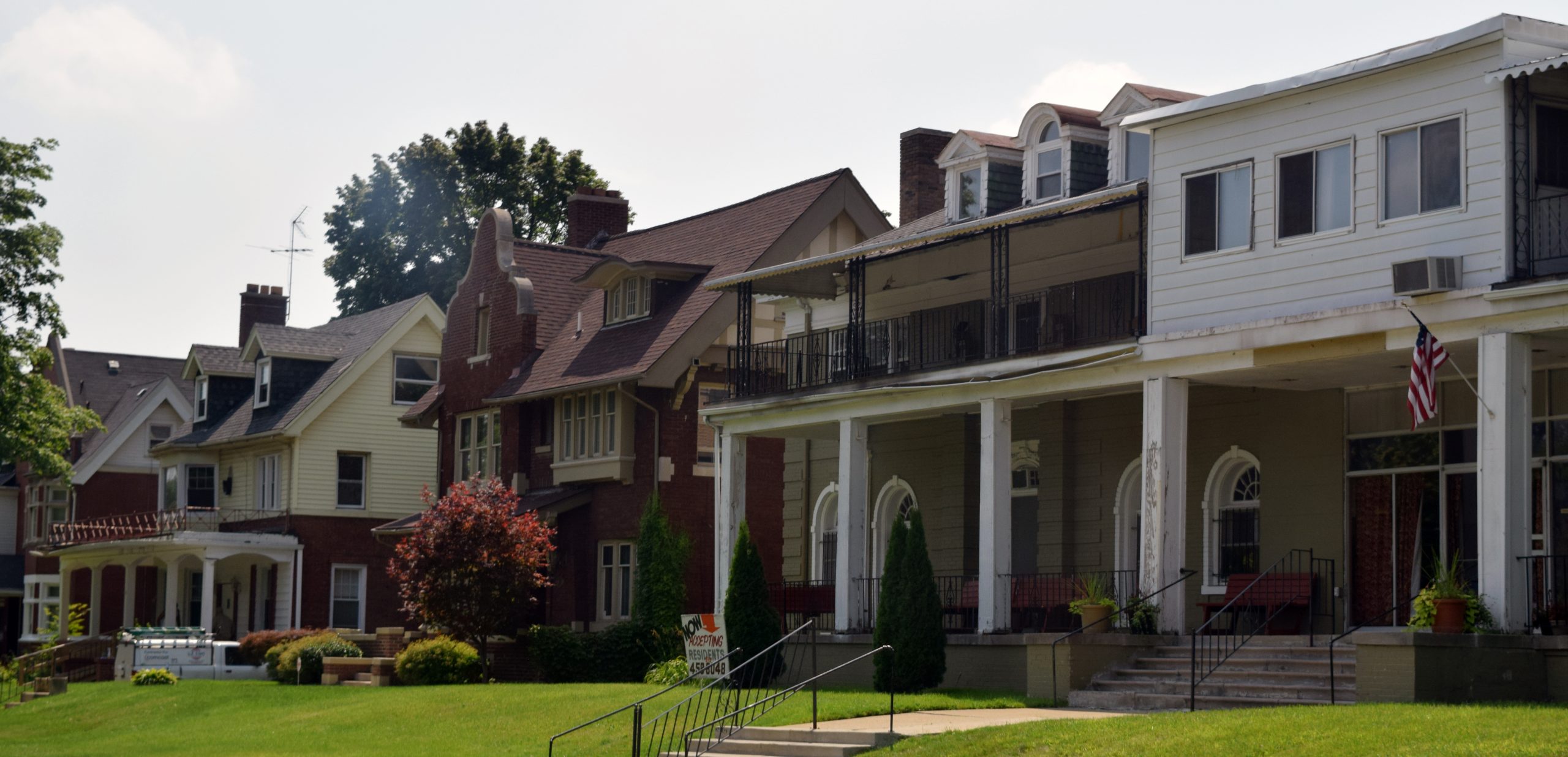This Tax Day, making the case for property tax reform in Detroit
April 15, 2016


(Credit: Luke Telander for Community Progress)
Ineffective property tax systems can have a detrimental community impact. They weaken the delivery of services that improve quality of life for local residents – from essential functions like public safety, to supportive services like enforcement of property maintenance standards.
Many of the cities that we work in face a shrinking population, widespread property abandonment, and significant declines in property values. All of these factors contribute to a devastating loss in the numbers of taxpayers and overall property tax base—which means less revenue to cover the costs of municipal services. As a result, cities struggle to support infrastructure like roads or sewers, often designed for a much larger population. At the same time, they’re facing mounting costs related to growing numbers of publicly owned properties and increasing demolition needs.
This leaves many cities stuck between a rock and a hard place. They desperately need enough property tax revenue to pay for municipal services. At the same time, they want to ensure tax rates are fair, low-income homeowners don’t lose their houses, and new owners aren’t discouraged from reoccupying vacant properties.
One city where this challenge is particularly acute is Detroit. Detroit’s tax model faces two major challenges: low collection rates and high tax bills.
Low collection rates: Fewer than three out of four property owners in Detroit pay their property taxes in a timely manner. This is a result both of property owners that are unwilling and property owners that are unable to pay.
High tax bills: Detroit homeowners pay a tax rate more than double the statewide average. These high costs, often compounded by inflated property assessments, lead to three critical issues. They:
(1) Prevent those with financial hardship from paying
(2) Cause current homeowners with the ability to pay to weigh homeownership options in other cities with lower taxes and better quality of services
(3) Discourage prospective homebuyers from purchasing a home in Detroit when weighing more competitive options elsewhere.
All of these issues ultimately lead to increased abandonment and tax foreclosure.
While the City has recently taken action to correct the inflated property assessments, challenges remain. This year, 22,600 properties were foreclosed on in Wayne County, the vast majority of which are located in Detroit. Understandably, much of the local attention has focused on strategies to get homeowners out of foreclosure. The real opportunity to stem the cycle of tax foreclosure in Detroit, however, is to prevent homeowners from falling into delinquency in the first place.
As we detail in Detroit’s Property Tax Policies and Practices: An Opportunity for Reform, a recent policy brief, while there are a number of broader state-level policy changes that could help address Detroit’s challenges, there are also a number of simple changes city leaders could implement now to maximize the number of Detroiters benefiting from existing tax relief programs. These programs are significantly underutilized, but could reduce the tax burden for Detroit’s vulnerable residents and provide incentives for new homeowners to reoccupy vacant properties.
The City, in partnership with local stakeholders, could work to increase residents’ awareness of and access to property tax relief options through a number of different tactics. Some of these include:
– Hosting a “one-stop-shop” webpage that would provide eligibility criteria and application information on all exemption programs as well as the property assessment appeal process so a taxpayer doesn’t have to navigate through multiple pages to find the information.
– Host “Tax Relief Fairs” that would gather all the relevant City and nonprofit entities in one place for residents to learn about every option for property tax relief as well as other supportive programs, such as the Detroit 0% Interest Home Repair Loan Program, or the Water Residential Assistance Program. Residents could even get help applying for exemptions on-site.
– Provide an online tax relief eligibility questionnaire that, with some quick information from the property owner, would indicate the property tax relief programs for which they may be eligible.
– Publish interactive maps for geographically-based tax relief, which would give homeowners the ability to search by address to quickly see which exemptions they’re eligible for in their neighborhood.
– Conduct a process efficiency analysis, which would identify any changes the City should make to reduce the amount of time it takes for a resident to apply for and receive notice of tax relief.
While the recommendations in the policy brief are specific to Detroit, many of the challenges that Detroit is grappling with are common to other cities. Efforts to make property tax systems easier to navigate for homeowners, particularly for homeowners likely to qualify for exemptions, will improve the fairness and effectiveness of any city’s property tax system.
Best yet, these changes are relatively simple to implement, focused mainly on how information is shared rather than requiring major policy reform. To preserve homeownership in cities with population decline or a number of potentially vulnerable homeowners, such as senior citizens, this can be an excellent starting point.
Check out our previous Tax Day features: Last year, we highlighted a report on tax lien sales in Cuyahoga County, and in 2014 we put out a crash course on delinquent property tax foreclosure.
Subscribe to join 14,000 community development leaders getting the latest resources from top experts on vacant property revitalization.
